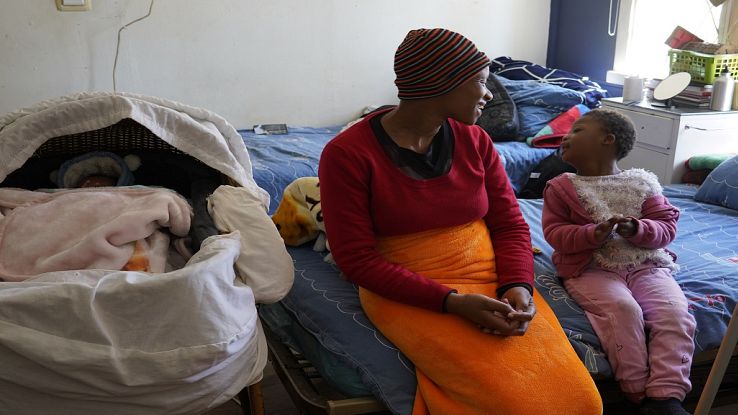Pregnant women in South Africa have access to HIV testing and antiretroviral therapy at health facilities. However, health officials in Gauteng are concerned that babies are still being born with HIV, despite the availability of free medication aimed at preventing mother-to-child transmission.
During the first half of this year, Gauteng, South Africa, which encompasses Johannesburg and Pretoria and has a population of over 15 million, saw the birth of 232 babies diagnosed with HIV.
The issue of mother-to-child transmission of HIV is a significant concern for UNAIDS, which reports that there are 120,000 new infections each year in children aged 14 and younger across the globe.
Health officials express alarm, emphasizing that even one case of mother-to-child HIV transmission is too high, given the treatments that are available. Melanie Langeveldt, who oversees primary healthcare programs in Tshwane, stated that,“There’s a variety of factors that play a role, whether it be migrating population or economic reasons or, a multitude of reasons. But we say people should know, let’s make a plan, come to the facility, let’s see how we can mitigate the factors that you do not interrupt your treatment because it does not have a good outcome.”
Langeveldt mentioned that one reason for the issue is that some pregnant women do not visit a clinic immediately after becoming pregnant, and many are unaware of their HIV status.
Some pregnant women are infected during pregnancy or breastfeeding. And some women do not stick to the guidelines of continuous and exclusive breastfeeding for the first six months.
Such factors are seen globally in mother-to-child transmission.
Langeveldt mentioned that her department is actively conducting broad campaigns to raise awareness among women that mother-to-child transmissions can be prevented by following the strict treatment guidelines offered at clinics.
Officials suggest that new mothers should test for HIV every three months while nursing and urge their partners to participate in HIV testing too.
Mapule Radebe who tested positive for HIV in 2015 is among the women who have successfully used medical treatment to ensure they do not pass the virus to their children.
“After I gave birth I continued to take my medication but also my daughter had certain medication to prevent her from being infected. But it was not for long. After six months she was then made to stop the medication. The nurses kept doing tests on her to check if she’s (HIV) positive or negative. She was alright, she was (HIV) negative,” she said.
She was anxious about the potential for her children to be born with HIV, but she learned that there are ways to prevent the virus from spreading.
This year, Radebe became a mother for the second time, with her new child also being free of HIV.
The lack of clarity surrounding the more than 200 pregnant women in Gauteng who did not take advantage of services this year, as well as the 211 women from the latter half of last year, is concerning.
South Africa has one of the highest HIV rates worldwide, with about 12.7% of its population, or roughly 7.9 million people, infected. More than 1.3 million children are living with HIV.
The nation experiences around 150,000 new infections every year.




